HackOH5
Student Newspaper
Hackathon
College of Wooster, March 31 - April 1, 2017 8pm - 8pm
College of Wooster, March 31 - April 1, 2017 8pm - 8pm
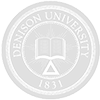 Denison University
Denison University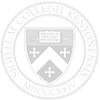 Kenyon College
Kenyon College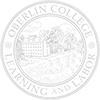 Oberlin College
Oberlin College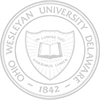 Ohio Wesleyan University
Ohio Wesleyan University College of Wooster
College of Wooster| Friday | |
|---|---|
| Time | Event |
| 8:00 pm | Check-in & Refreshments |
| 8:30 pm | Welcome Session & Introductions |
| 9:00 pm | Coding Begins |
| 9:00 pm | Workshop: Working with Text in Digital Humanities |
| 9:50 pm | Workshop: Starter Scripts for Querying CONTENTdm with Python |
| 10:50 pm | Workshop: Using GitHub for Collaboration on Projects |
| Saturday | |
|---|---|
| Time | Event |
| 2:00 am | Late Night Snack Break |
| 9:00 am | Breakfast |
| 1:00 pm | Lunch |
| 5:00 pm | Coding Ends - Deadline to Submit Projects |
| 5:15 pm | Share Projects: Lightning Presentations |
| 6:00 pm | Dinner |
| 7:00 pm | Prizes Announced |
| 8:00 pm | Shuttle Arrives for Return Trip |

The libraries at the Five Colleges of Ohio have digitized the student newspapers of each college going back to 1856. The result is a huge dataset of text and images, filled with years of student news coverage, a rich historical resource for research in a variety of disciplines.
We are inviting you to experiment with this data, deconstruct it, combine it with other data, visualize it, contextualize it, and most importantly, explore what this legacy of student news coverage tells us about our colleges and about our history.
Projects submitted at the end of the hackathon will be judged, and prizes will be awarded to the projects that best leverage the potential of the newspapers as a resource for research and analysis. Specific prizes will be announced as we get closer to the event.

The College of Wooster's Collaborative Research Environment (CoRE) and Longbrake Commons, both located in Andrews Library, offer tons of collaborative and individual workspaces. We'll be kicking off the event in the "Cube" but teams will be free to work anywhere throughout the library.
We have lined up a great team of mentors to assist teams with their projects and to offer short workshops on a variety of topics, including working with APIs, text mining and analysis, and using GitHub for collaborative projects.
We will work with each campus to arrange for transportation to the event for those interested in participating but who do not have transportation. So if you're on the fence about registering because of that, go ahead and sign up anyway!
We are committed to providing a harassment-free experience for everyone. To that end, all attendees, mentors, volunteers, and staff participating in the event are required to agree with the HackOH5 Code of Conduct.

So what will you build? There have been lots of examples of projects involving digitized newspapers. Mining the Dispatch from the University of Richmond, Mapping Texts, a collaboration between Stanford University and the University of North Texas, and Viral Texts from Northeastern University are just a few examples.
Each of these is a large-scale and well funded project. You very likely will not have the time to build anything quite as polished as these, but these examples are provided here as possible approaches to using programming or digital methodologies to work with newspaper datasets.
If you have ideas of your own, considering joining and posting to the HackOH5 Student Newspaper Hackathon Facebook group and invite others to join you.

The data from the OH5 student newspaper collection is available in a variety of ways. The collection is available online in the Five Colleges of Ohio Digital Collections Portal, but it is also available as an API and as a full data dump including the original scanned page images which will be made available during the event.
We have made an effort to share the data with you in advance, provide some background about the Ohio Five newspaper collection, and suggest some tutorials relevant to this type of data that you might find useful.

Associate Professor of Computer Science, Denison University

Digital Humanities Specialist, University of Pennsylvania Libraries
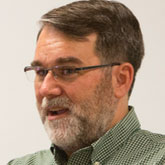
Professor of Computer Science, Denison University

Associate Professor / Head of Digital Initiatives, Ohio State University Libraries

Lead Software Applications Developer, Initiative for Digital Humanities, Media, and Culture, Texas A&M University

Mellon Digital Humanities Fellow, Visiting Assistant Professor of English, Washington and Lee University
Questions? Contact libraries@ohio5.org